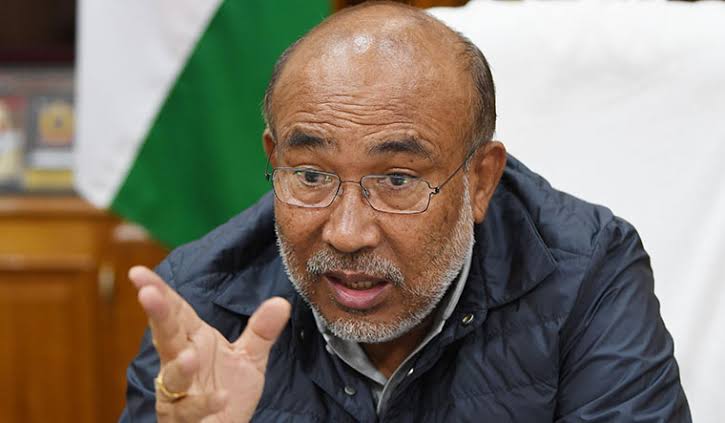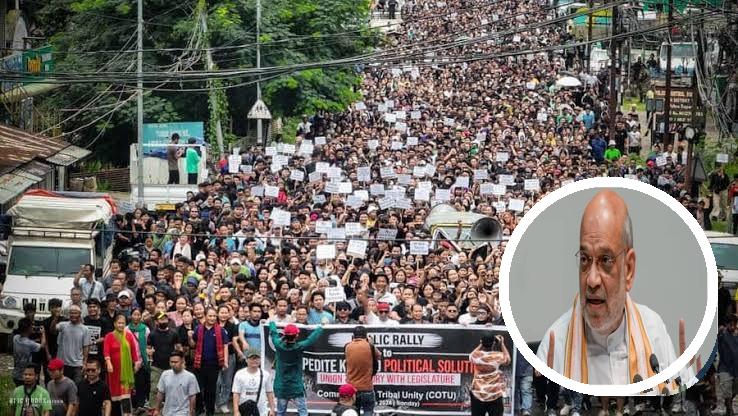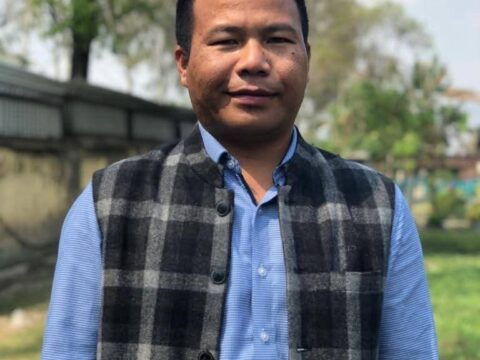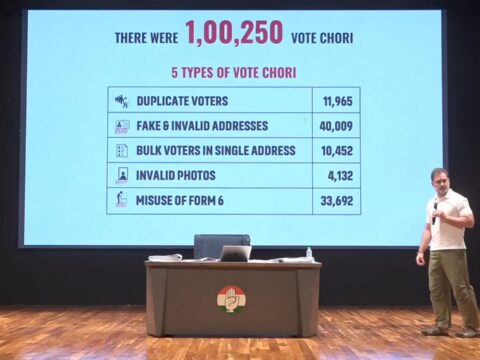Hentinlal Kuki | Opinion
In a recent letter dated 25 June 2025, Nongthombam Biren Singh former Chief Minister of Manipur and sitting MLA from Heingang has urged the Governor to intervene over what he describes as a textual discrepancy in the Manipur Legislative Assembly (Hill Areas Committee) Order, 1972. His concern centres around a single word “or” which he claims was either omitted or altered in the version of the document published by the State Assembly as compared to the Gazette of India. According to Singh, this minor change has opened the floodgates for the unchecked proliferation of villages and appointments of tribal chiefs outside the bounds of “customary legitimacy.”
While Biren Singh frames his letter as a defence of constitutional sanctity, the selective indignation is hard to ignore. The 1972 Hill Areas Committee (HAC) Order formulated under Article 371C of the Indian Constitution was created to provide legislative safeguards to the Scheduled Tribes inhabiting the hills of Manipur. The law is clear: no bill affecting the hill areas can be introduced in the Assembly without being first referred to the HAC, a committee composed solely of elected members from the hill districts. It is a structural attempt to ensure that tribal voices are not drowned by the numerical dominance of the valley.
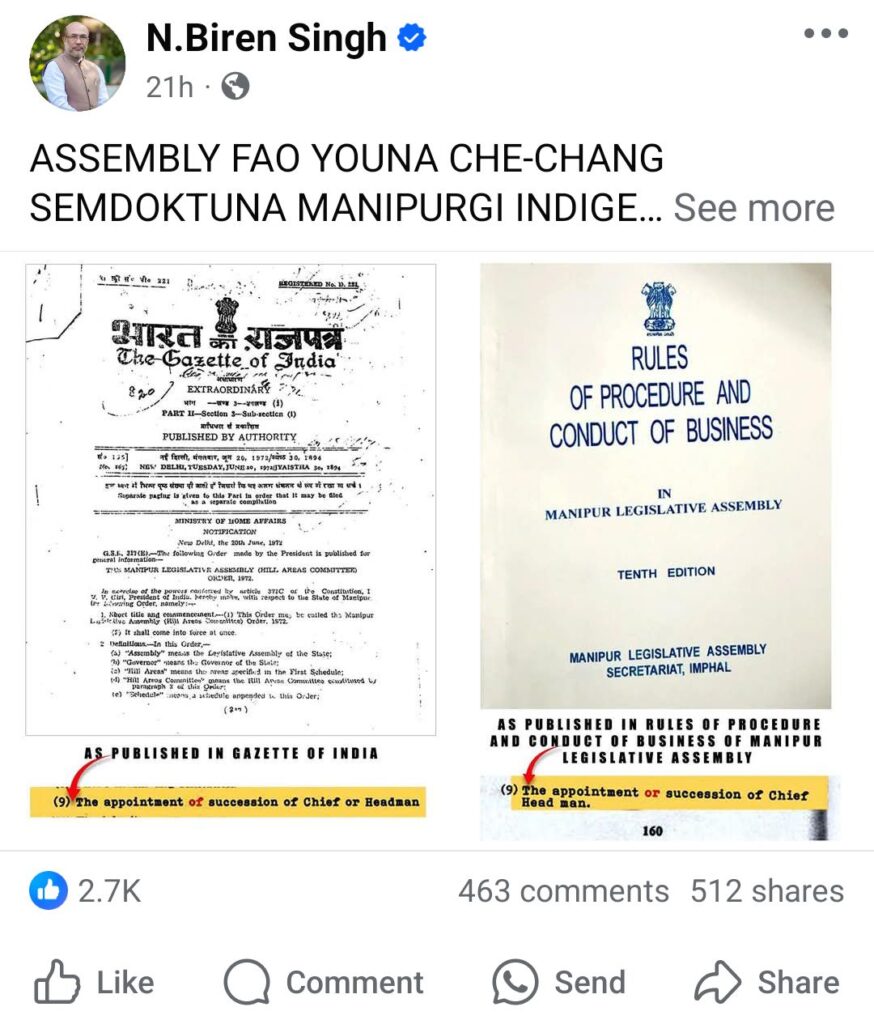
However, during Biren Singh’s tenure as Chief Minister, the HAC was repeatedly sidelined. In 2021, the Committee itself passed a unanimous resolution accusing his government of violating the 1972 Order by pushing policies concerning land, forest, and administration in hill areas without consultation. These include the controversial eviction drives under the guise of forest conservation, reclassification of protected areas, and unilateral delimitation plans that threatened the demographic and electoral equilibrium in the hills. The HAC’s pleas for constitutional adherence were ignored then. Its authority was treated with disdain until now, when Singh finds it politically convenient to cite the very rules his government trampled upon.
The context behind his recent letter is not linguistic, but political. Since May 2023, Manipur has been engulfed in a brutal ethnic conflict, largely between the Meitei and Kuki communities. According to reports from The Indian Express, Scroll, and The Wire, over 200 tribal villages have been torched, more than 50,000 people mainly Kukis have been displaced, and entire districts like Churachandpur, Kangpokpi, and Tengnoupal have seen systematic violence. Churches were set ablaze, women were assaulted in public, and security forces stood complicit or inactive in several cases. Biren Singh’s administration not only failed to contain the violence but was accused of actively enabling it. Testimonies from victims and civil society organisations including the Kuki Students’ Organisation and Indigenous Tribal Leaders’ Forum labelled his role as orchestrator rather than arbiter.
In this climate, tribal communities have had no choice but to establish new settlements. These are not “illegitimate” villages, as Singh implies, but survival spaces created by displaced populations. The appointment of new chiefs is not a constitutional farce it is a cultural and social necessity when entire communities are uprooted. To reduce this post-conflict reconstruction into a grammatical dispute is not only tone-deaf but morally bankrupt.
The real distortion, then, is not in the documents but in the narrative Singh is trying to construct. His letter to the Governor reads like an attempt to reframe tribal resilience as tribal encroachment. It seeks to discredit the reconstitution of Kuki settlements as a threat to legality, all while erasing the violence that forced their displacement. It is also a calculated political signal to the valley electorate, a veiled reaffirmation of anti-tribal sentiments dressed in bureaucratic caution.
For the Kuki community, Biren Singh is not a constitutional sentinel. He is remembered as the man under whose watch their homes were burnt, their churches desecrated, their women violated, and their communities fractured. His letter, no matter how official in tone, carries no moral weight. It is not a call for justice; it is a desperate attempt to deflect accountability. There can be no serious discourse on governance in Manipur until those responsible for enabling state-backed violence are held to account.
This is not merely a question of policy it is a question of justice. The constitutional order that Biren Singh now invokes demands his prosecution, not his counsel. The 1972 Order, the Gazette of India, and Article 371C all stand as mute witnesses to the fact that it is not the tribal communities who defied the law but the man who ruled in contempt of it.
Hentinlal Kuki is a social worker based in Kangpokpi. The views expressed are personal.
